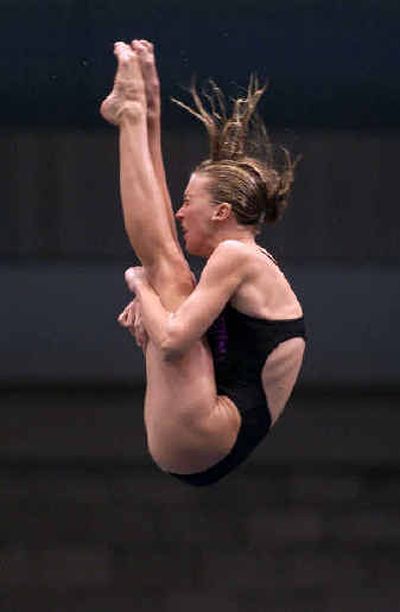USA Diving changes selection procedures

For a century, divers from the United States were more successful than any other Olympic athletes in individual sports.
But after American divers failed to win a medal last summer at Athens, Greece, the sport’s leaders have abandoned a selection system that once worked so well.
USA Diving, which has its headquarters in Indianapolis, is changing the way it selects teams for the Olympics and international meets. Also, the diving national training center is moving, from The Woodlands, Texas, to the Natatorium at Indiana University-Purdue University Indianapolis.
The selection process will be more subjective than under the previous system, in which teams were chosen from a single competition. Now, divers still will go through a trials meet but must also attend a camp before selections are made.
USA Diving also intends to identify talent at earlier ages and devote resources to those athletes’ development.
Perhaps the most promising American diver is Thomas Finchum, 15, of Indianapolis. When he was only 10, he was targeted as someone with Olympic potential.
“He’s the poster child of what talent identification can do,” said Steve McFarland, chairman of USA Diving’s committee for competition excellence.
If the new system had been in place last year, Finchum likely would have been sent to Athens based on his potential. Instead, he was left off the team after finishing second on the 10-meter platform at the U.S. Trials. The trials winner, Caesar Garcia, finished 23rd at the Olympics.
Ron O’Brien, national performance director, said USA Diving’s new process will resemble that of USA Gymnastics. American gymnasts won no medals in 2000, then won nine at Athens.
“This time we didn’t get any (diving) medals. So we had to examine how we did business, and whether that was the best way for us,” said O’Brien, who formerly coached four-time gold medalist Greg Louganis. “Prior to the jolt of not winning any medals, things just kind of went on status quo.”
One of the first manifestations of the new process will be a five-day camp at the Natatorium that starts Sunday. There, invited athletes will vie for spots at international events.
USA Diving wants to identify up to 20 athletes with Olympic medal potential and invite some to reside at the training center. The number of invitees, who will receive stipends for living expenses, depends on how much funding becomes available from the U.S. Olympic Committee.
O’Brien proposed changing the selection process during the 1990s because of challenges from other countries, notably China. But Americans won two diving medals in both 1992 and 1996, and nothing changed.
By 2004, the sport had changed so much that the highest Olympic finish by an American was a fifth by Laura Wilkinson. She won a gold medal on platform in 2000.
Australia, Russia, Mexico and Canada have joined China as world powers.
“The level of performance that you have to be at the world-class level has gone up,” O’Brien said. “And the depth of talent has deepened. You don’t have a chance to slip up a little bit and then get back in the mix.”